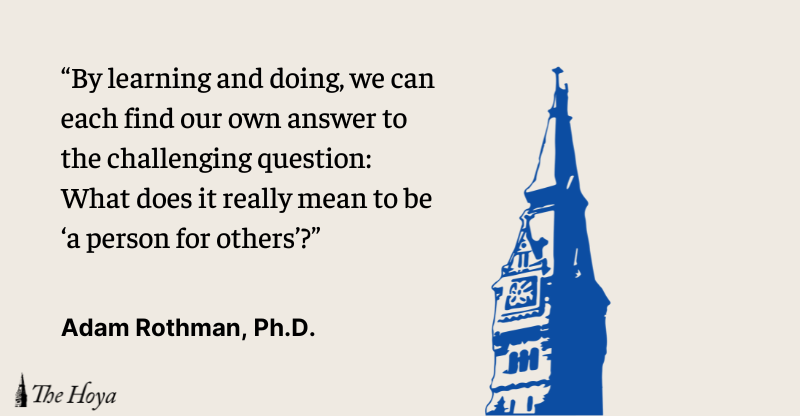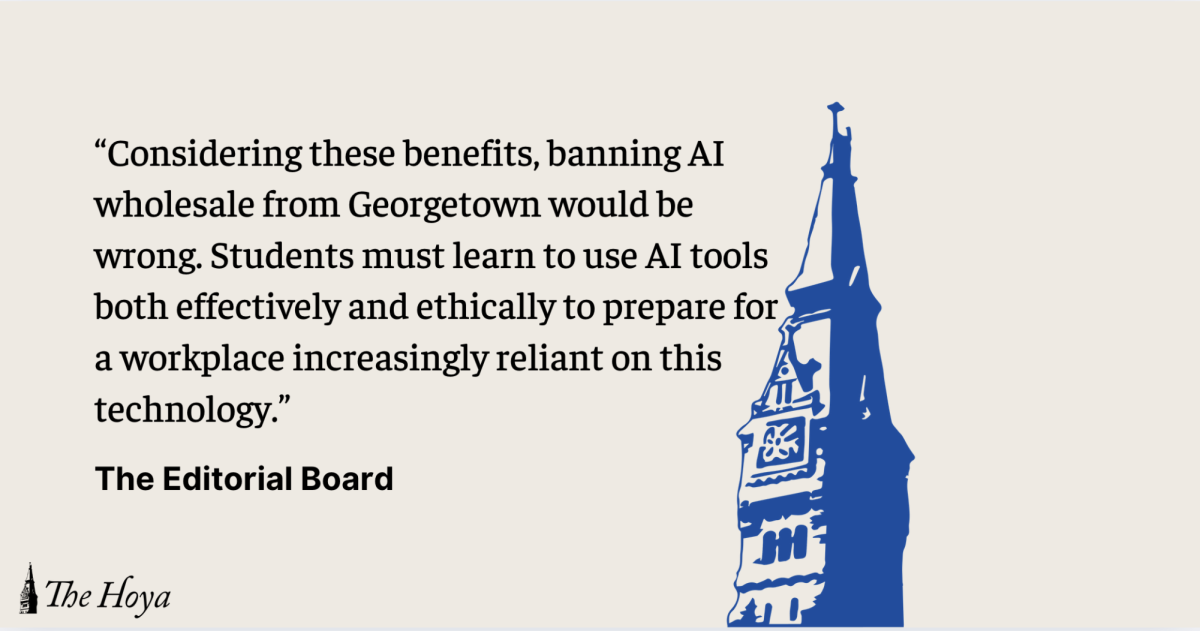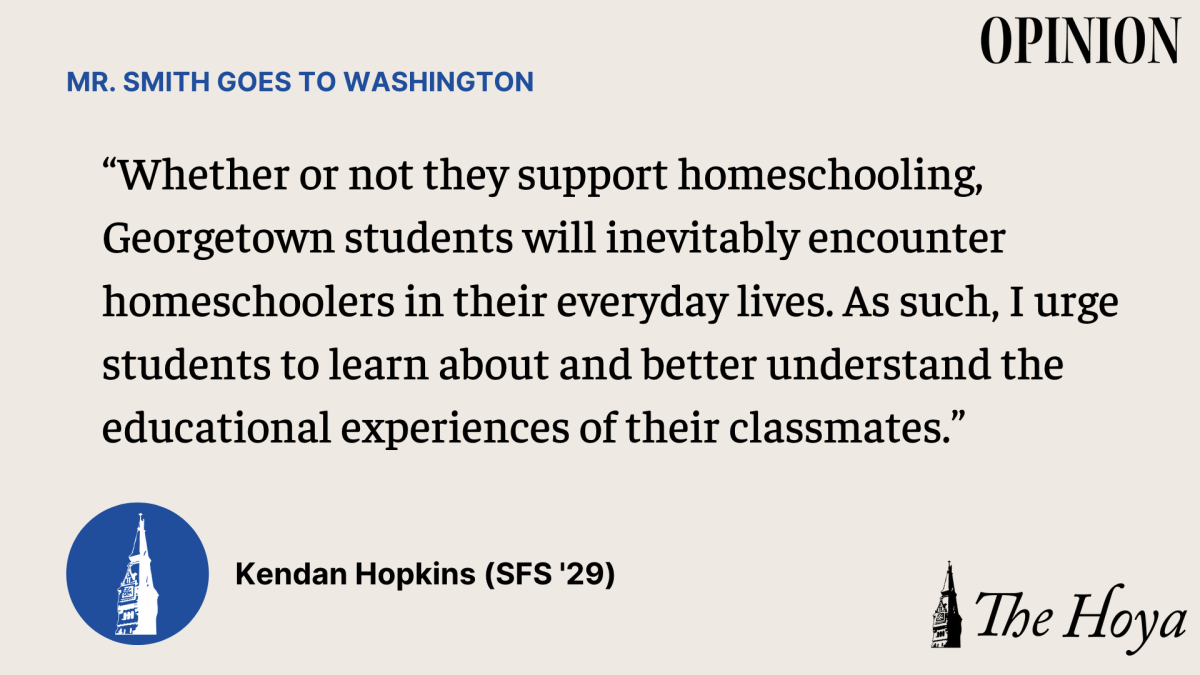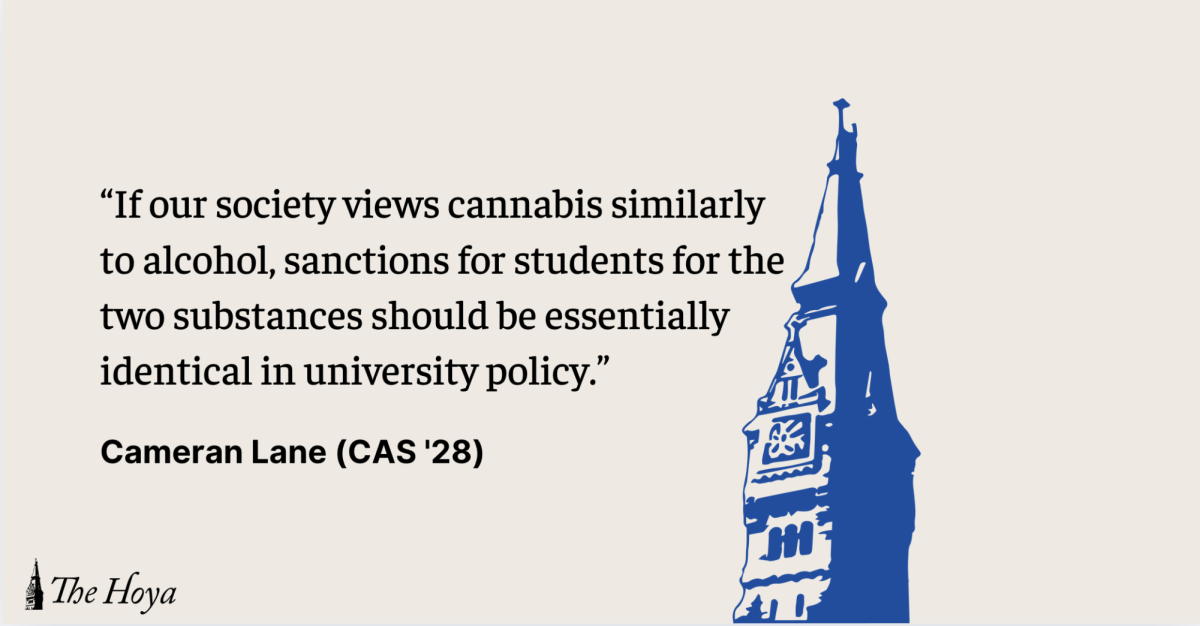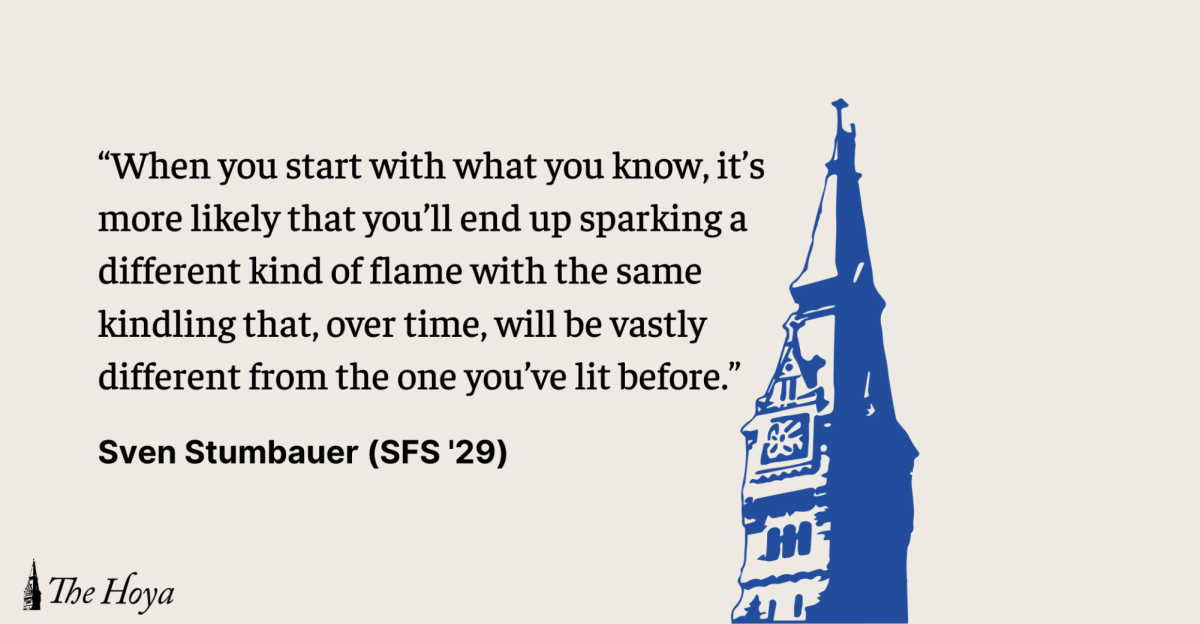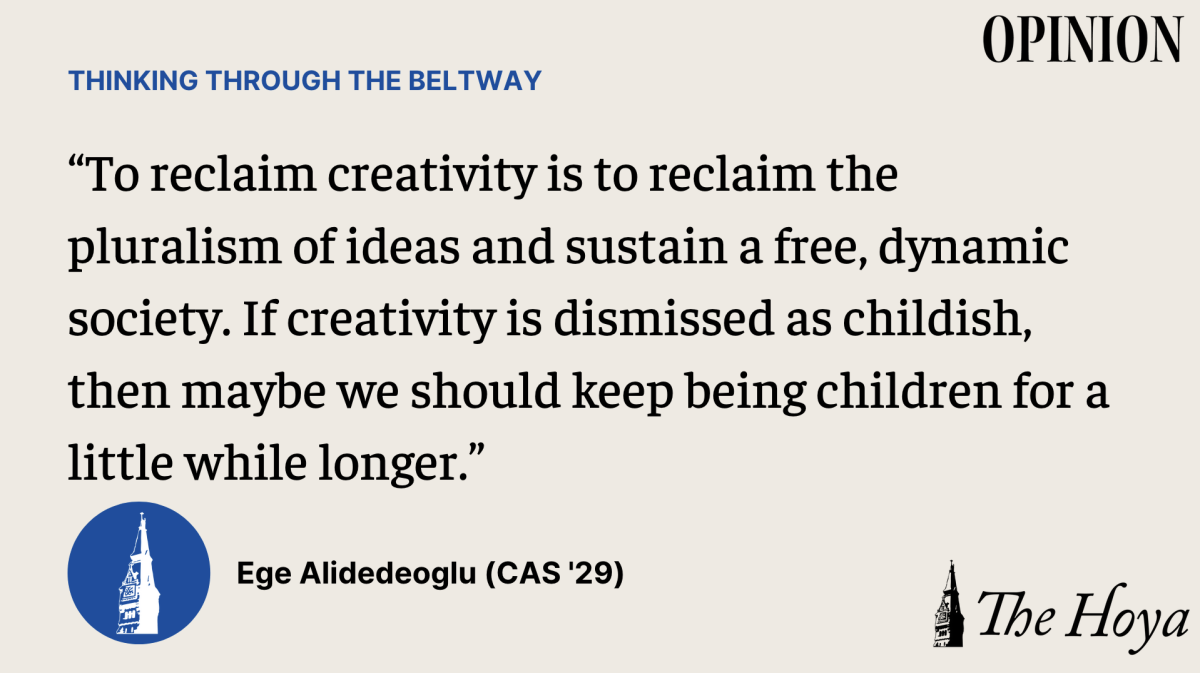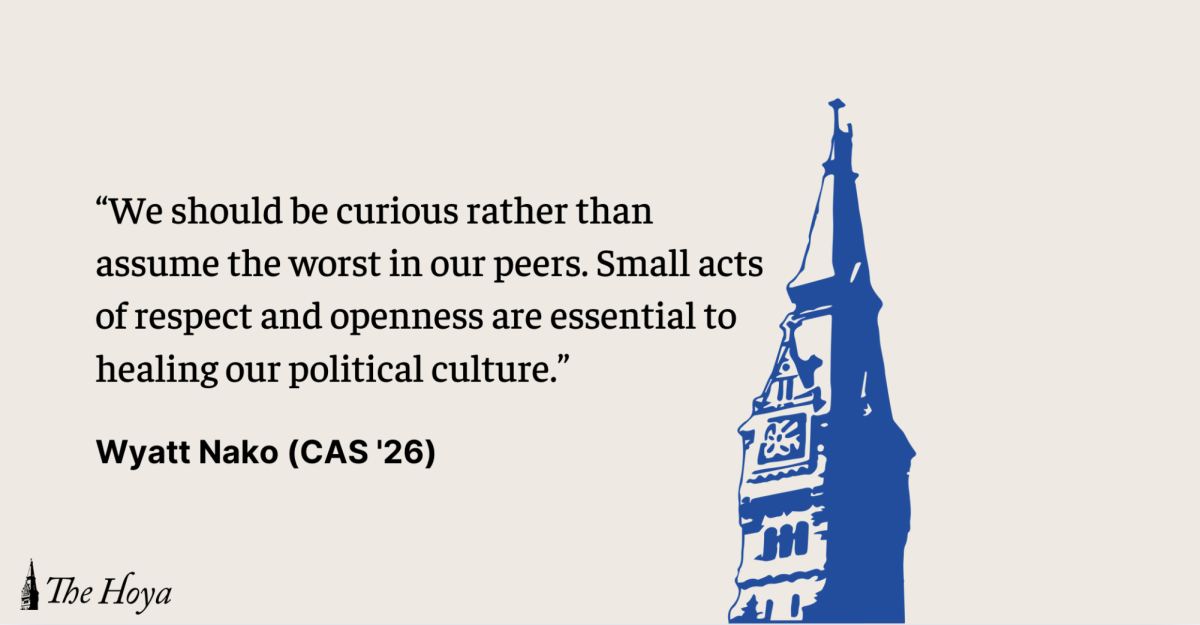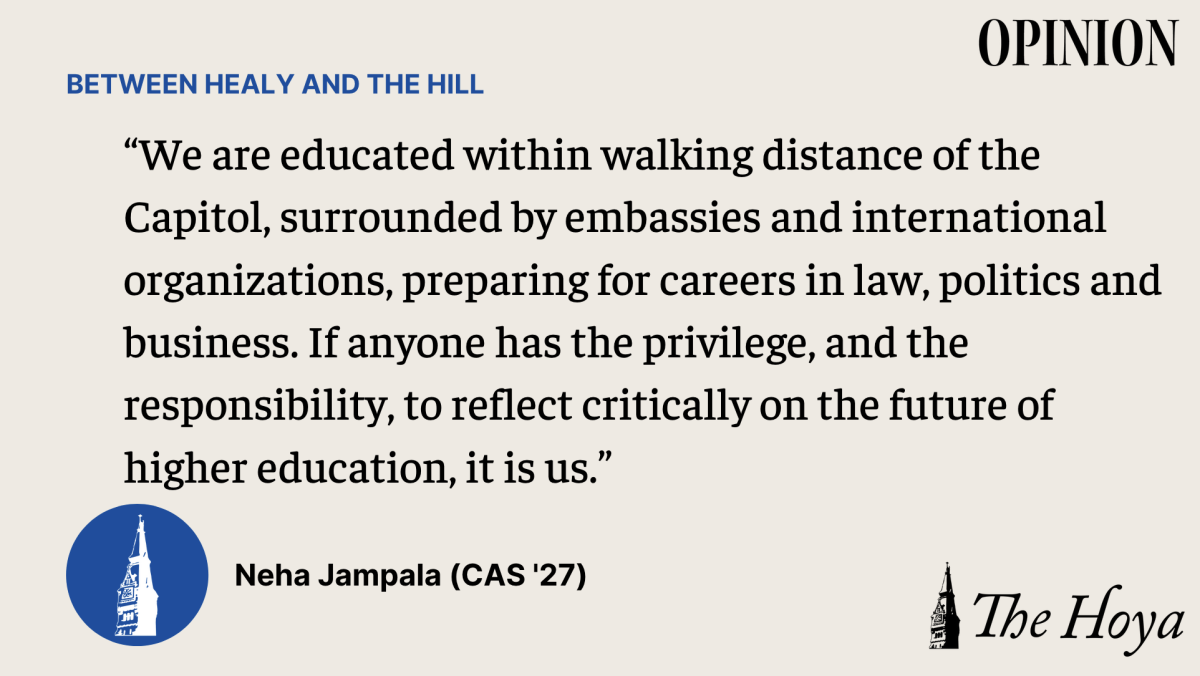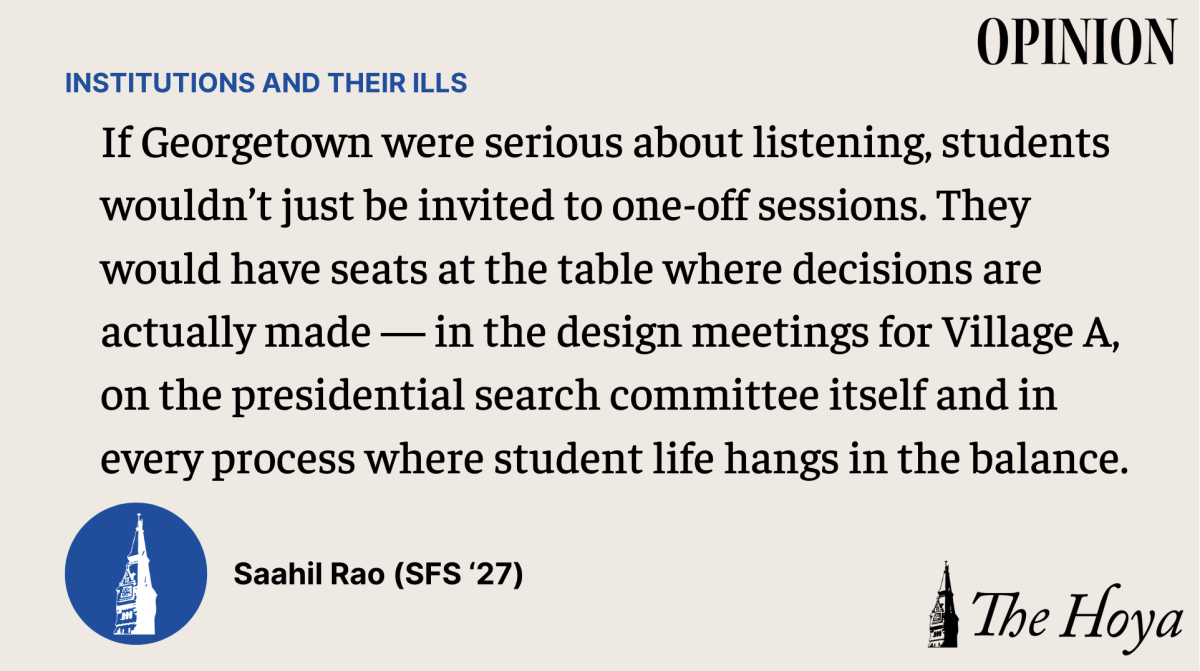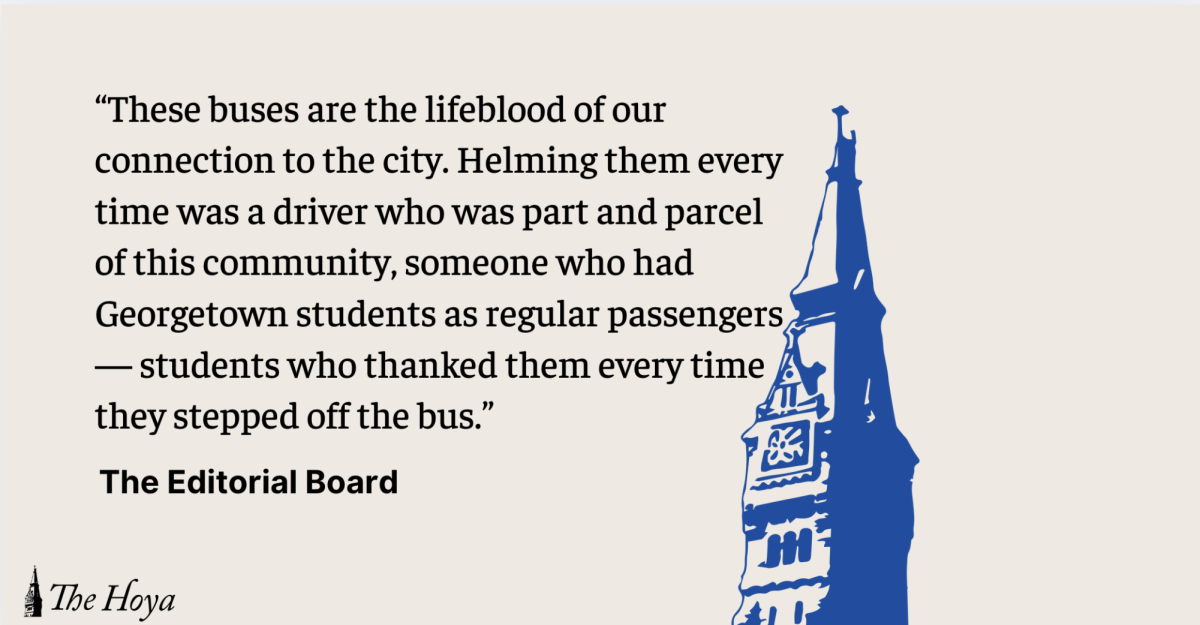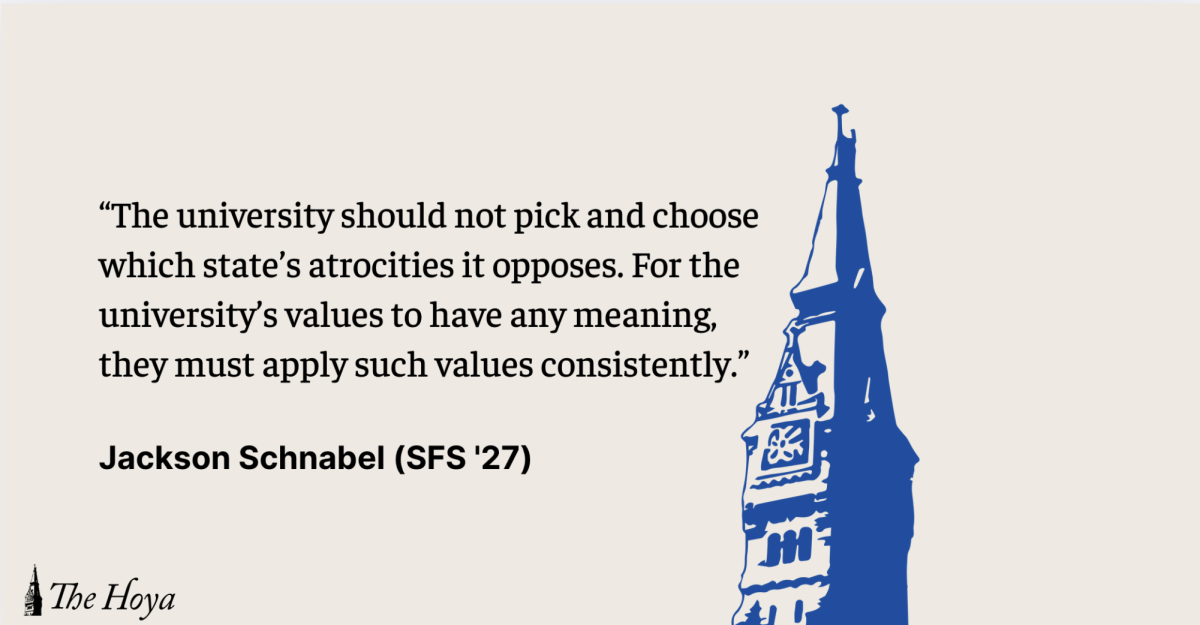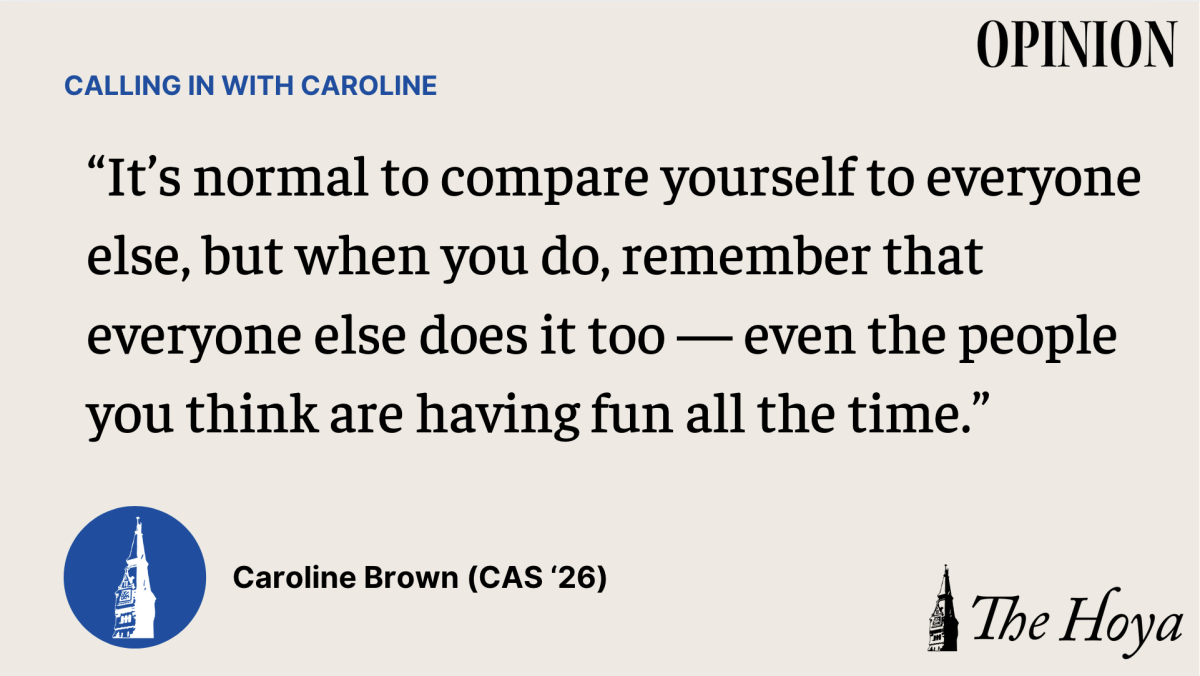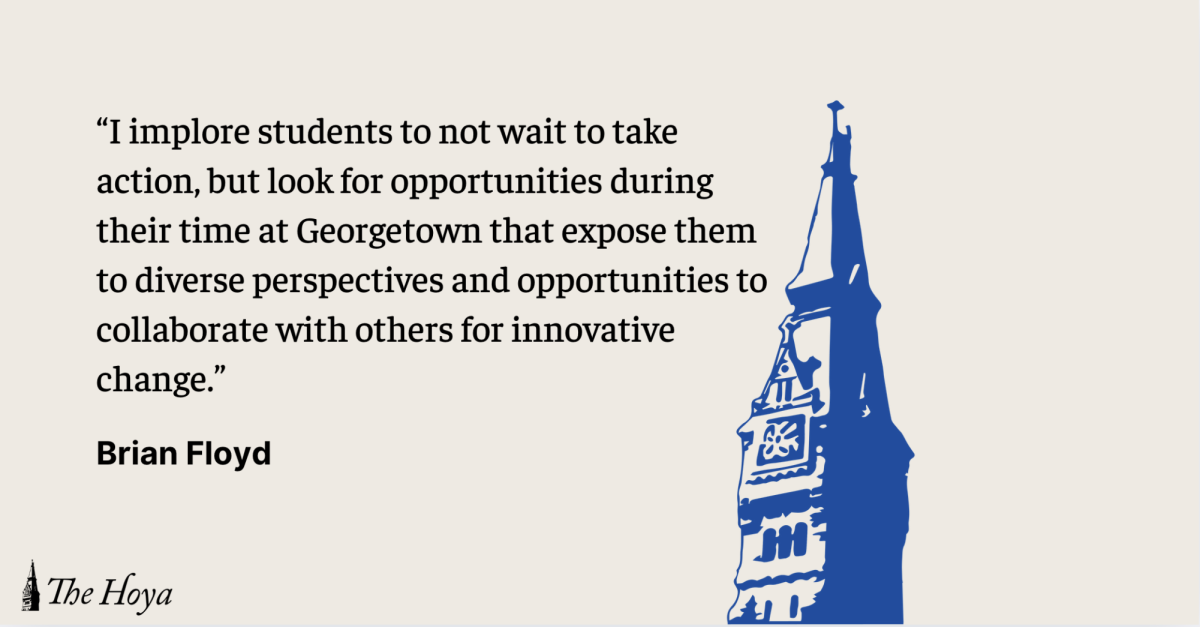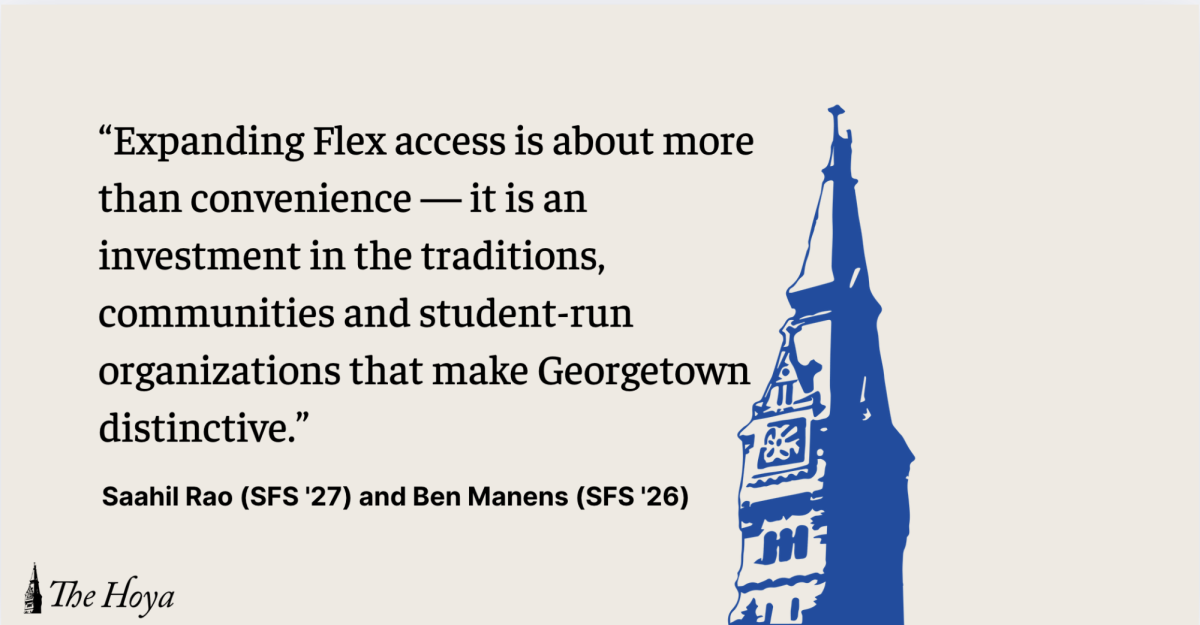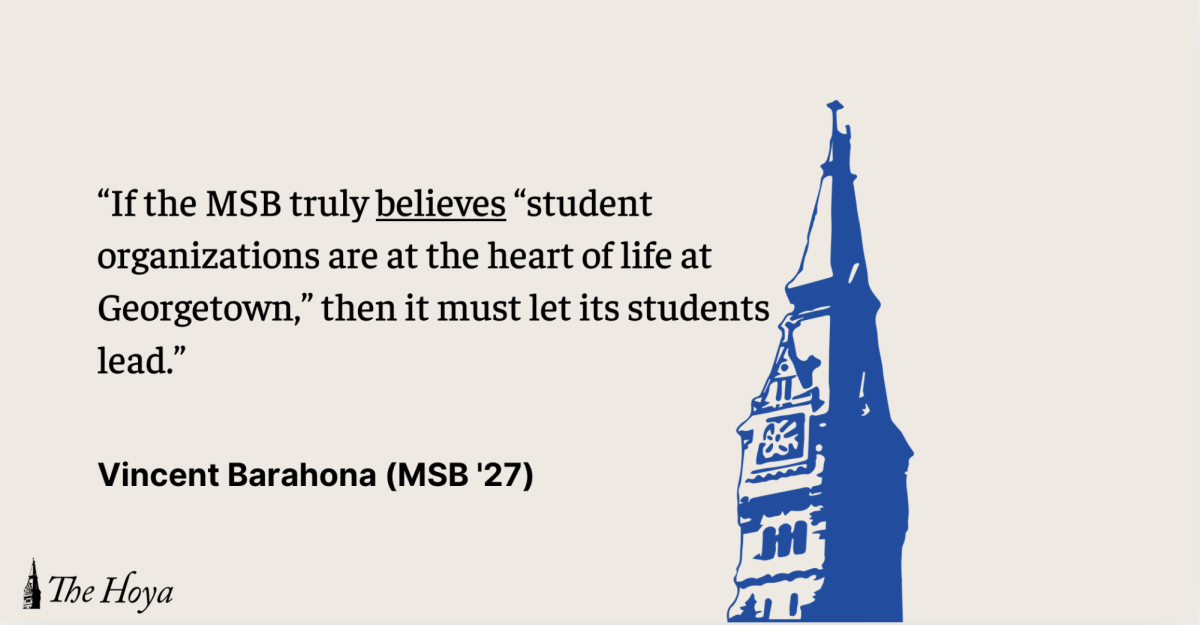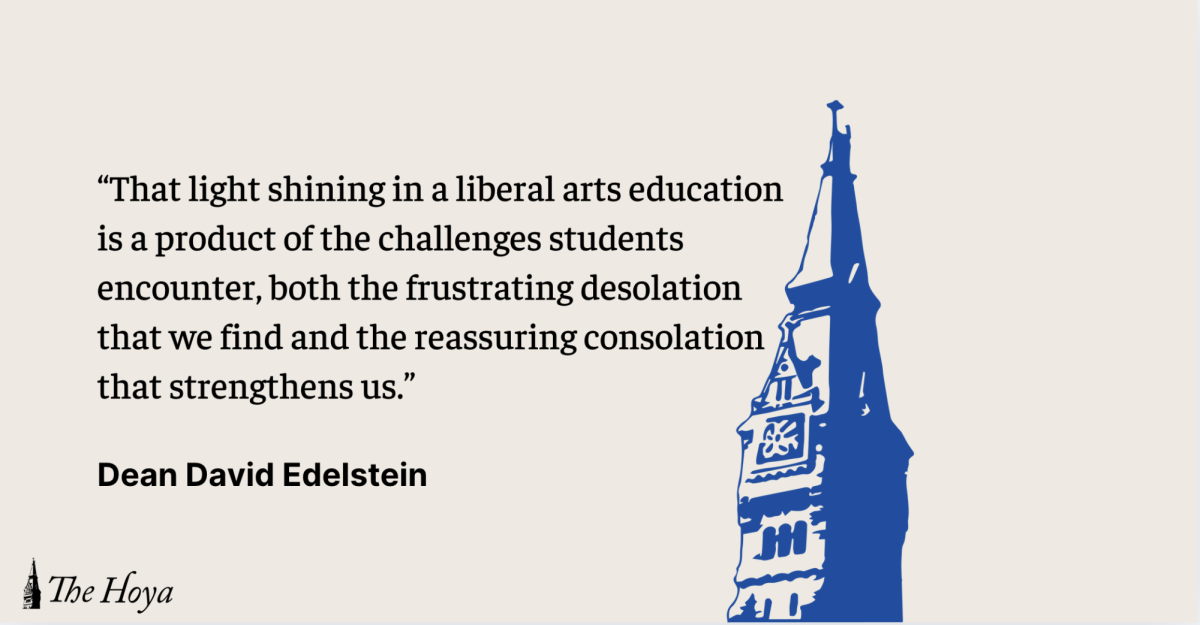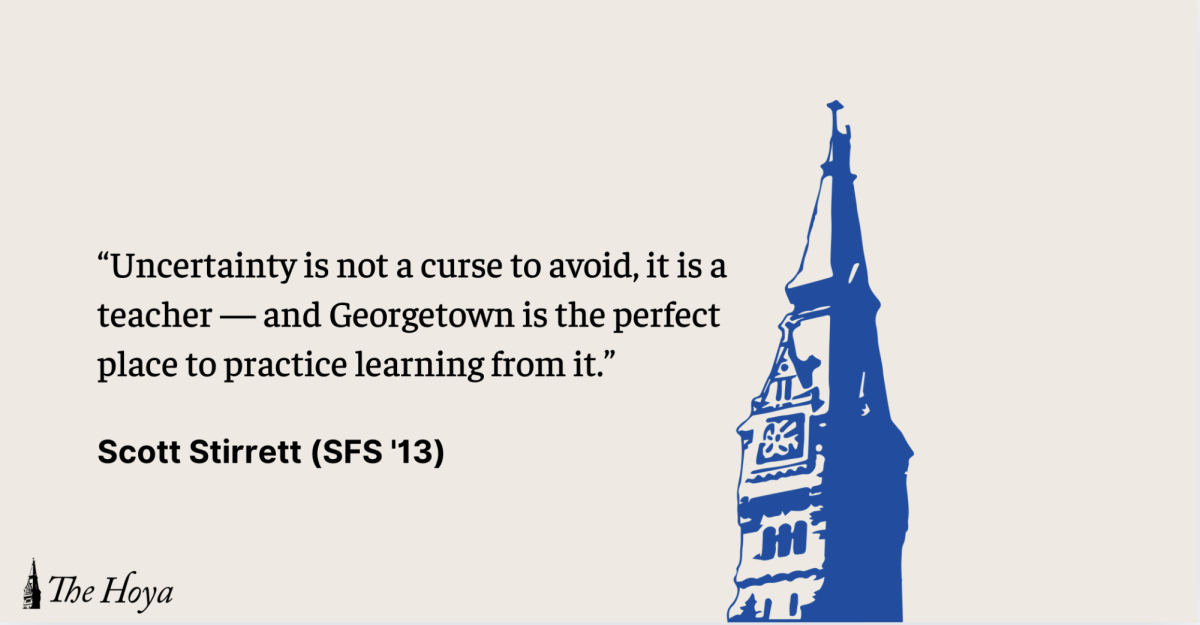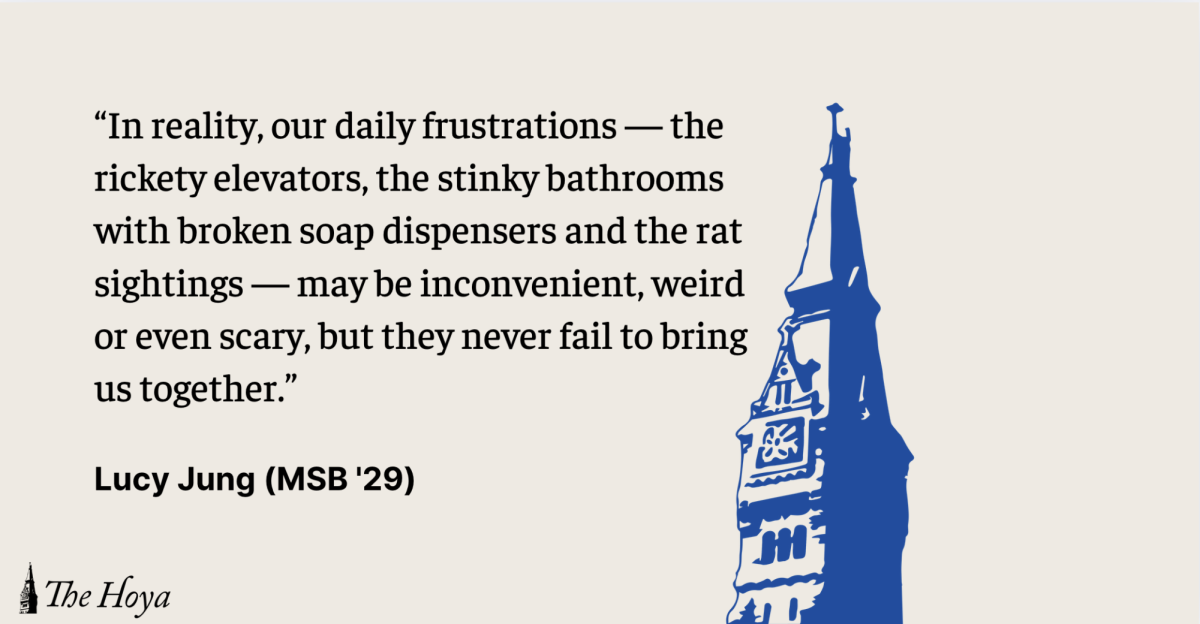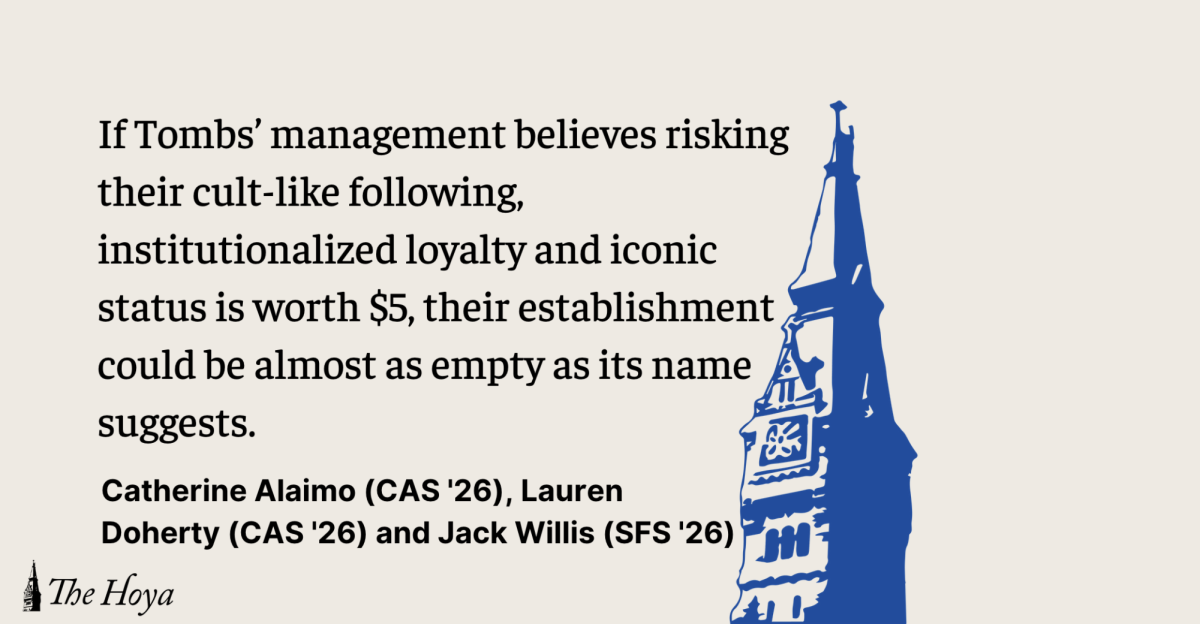This year, Georgetown University added a new element to the core curriculum called “Pathways to Social Justice” (PSJ). This curriculum introduces students to the idea of justice that runs through Georgetown’s values, from community in diversity to faith that does justice. Social justice is an essential component of contemporary Jesuit and Catholic thought, and this new curriculum offers students a chance to learn about what it means in theory and practice while connecting it to their own traditions, lives and time at Georgetown.
The PSJ curriculum includes a new required course: UNXD 1200, or “Race, Power, and Justice at Georgetown” (RPJ@GU). Students must also take two additional courses from a broad menu of courses that satisfy the requirement. These “overlay” courses must meet certain intellectual and pedagogical criteria to be eligible for the PSJ tag. The first criterion is that PSJ courses should be models of inclusive scholarship by emphasizing the intellectual work of people who have historically been excluded from academia.
RPJ@GU is a one-credit, half-semester class that all transfer students and first-year students starting with the Class of 2028 will take some time in the first year at Georgetown. The course is offered four times per academic year, twice in the fall and twice in the spring. The course meets twice every week — once all together for a big event, such as a film screening or panel discussion and once in smaller discussion sections each led by a different instructor, 16 in all. There are several short assignments that invite students to ask questions and reflect on what they’ve heard, read, discussed and learned.
Each week of the class is devoted to a different theme. We start with Georgetown’s reckoning with its history of slavery and then shift to the school’s contemporary relationship to its surrounding communities and continue on to problems of race, power and justice on a global scale. We read sources drawn from the university’s past and present and hear from the experts and practitioners across the university community who are immersed in deep study of these difficult issues.
As the coordinator of RPJ@GU, I’m excited to be a part of this new class along with many outstanding colleagues from across the university. It comes out of a long process of discernment that transformed the previous “Engaging Diversity” requirement, which had become diffuse, into what we hope is a more meaningful and intentional learning experience for students. Importantly, this change emerged from Georgetown students’ own engagement with and activism around the curriculum. Like “The Problem of God” or “Maps of the Modern World,” RPJ@GU offers not just valuable information, but a foundation for further inquiry.
The issues this course explores are difficult indeed: reconciliation and reparations for slavery and other historical injustices; overcoming ingrained patterns of racial segregation; reducing disparities in income, wealth, health and education; confronting a brutal system of mass incarceration; and rebuilding faith communities deformed by racism. However, as our school’s own history of slavery demonstrates all too well, Georgetown cannot deny or escape its responsibility to address these pressing problems. Our university has resources at its disposal — most of all, the values of our community — that enable the next generation of Hoyas to take up the task of repair.
You can start right here. Many Georgetown students are involved in groups that work toward justice on campus and beyond. Some fight for the rights of workers at Georgetown. Some advocate and support low-income, first-generation and undocumented Hoyas. Some tutor poor African American, Latino and other immigrant children in Washington, D.C. Some are involved in the effort to seek reconciliation with the GU272 descendant community and to preserve the Georgetown neighborhood’s historic African American cemeteries. Some participate in Georgetown’s Prisons and Justice Initiative, working to exonerate people who were wrongfully convicted or to help incarcerated people advance their own education behind prison walls. These are just a few examples of how students advocate for justice outside the classroom. Now, Pathways to Social Justice will inform and strengthen students’ passion for justice by connecting that passion to our shared Georgetown values inside the classroom.
By learning and doing, we can each find our own answer to the challenging question: What does it really mean to be “a person for others”? RPJ@GU and Pathways to Social Justice will provide students with language, concepts and tools that they can carry throughout their academic and personal journeys toward a more just future.
Adam Rothman, Ph.D., is the interim chair of the department of history and director of Georgetown University’s Center for the Study of Slavery and Its Legacies.


